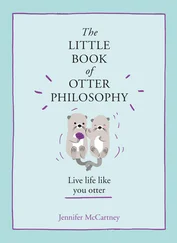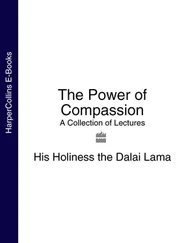Dalai Lama - The little book of Buddhism
Здесь есть возможность читать онлайн «Dalai Lama - The little book of Buddhism» весь текст электронной книги совершенно бесплатно (целиком полную версию без сокращений). В некоторых случаях можно слушать аудио, скачать через торрент в формате fb2 и присутствует краткое содержание. Жанр: Религиозная литература, на английском языке. Описание произведения, (предисловие) а так же отзывы посетителей доступны на портале библиотеки ЛибКат.
- Название:The little book of Buddhism
- Автор:
- Жанр:
- Год:неизвестен
- ISBN:нет данных
- Рейтинг книги:5 / 5. Голосов: 1
-
Избранное:Добавить в избранное
- Отзывы:
-
Ваша оценка:
- 100
- 1
- 2
- 3
- 4
- 5
The little book of Buddhism: краткое содержание, описание и аннотация
Предлагаем к чтению аннотацию, описание, краткое содержание или предисловие (зависит от того, что написал сам автор книги «The little book of Buddhism»). Если вы не нашли необходимую информацию о книге — напишите в комментариях, мы постараемся отыскать её.
These thought-provoking quotations about the importance of love and compassion, and the need for individual responsibility, fuse ancient wisdom with the awareness of the problems of everyday life.
The little book of Buddhism — читать онлайн бесплатно полную книгу (весь текст) целиком
Ниже представлен текст книги, разбитый по страницам. Система сохранения места последней прочитанной страницы, позволяет с удобством читать онлайн бесплатно книгу «The little book of Buddhism», без необходимости каждый раз заново искать на чём Вы остановились. Поставьте закладку, и сможете в любой момент перейти на страницу, на которой закончили чтение.
Интервал:
Закладка:
In addition to practising Buddhism in the waking state, if you can also use your consciousness during sleep for wholesome purposes, then the power of your spiritual practice will be all the greater. Otherwise the few hours of sleep each night will be just a waste.
The Sutrayana method is to cultivate a wholesome mental state when you are going to sleep.
When the clear light nature of the mind is veiled or inhibited from expressing its true essence by the conditioning of afflictive emotions and thoughts, one is said to be caught in samsara, the cycle of existence. But when by applying appropriate meditative techniques and practices, one is able to fully experience this state of mind, he or she is on the way to true liberation and full enlightenment.
When a wrong deed has been done, then after learning that it was wrong, one can disclose the deed – in the presence of actual or imagined holy beings – and resolve not to do that action again in the future. This diminishes the force of the ill deed.
Determination, courage and self-confidence are the key factors for success. If we have firm determination, we can work out obstacles and difficulties. Whatever the circumstances, we should remain humble, modest and without pride.
When you create the spiritual space and atmosphere that you are seeking through rituals and formalities, then the process will have a powerful effect on your experience. When you lack the inner dimension for that spiritual experience you are aspiring to, then rituals become mere external formalities and just a good excuse for passing time.
Blessings by themselves are not enough. They must come from within. Without your own effort, it is impossible for them to come.
There are two aspects of the path: the method aspect, which includes such practices as compassion and tolerance; and the wisdom or knowledge aspect, which involves the insight to penetrate the nature of reality. It is the latter aspect of the path that is the true antidote to dispelling ignorance.
Certain physical illnesses improve or worsen according to the state of mind.
It would be much more constructive if people tried to understand their supposed enemies.
Learning to forgive is infinitely more useful than merely picking up a stone and throwing it at the object of one's anger, especially when the provocation is extreme.
The grosser consciousness depends heavily on particles of matter. The subtler consciousness is more independent – it does not depend so much on the brain. In the Buddha state, the grosser mind completely disappears. Luminance, radiance, imminence – the three states of subtle mind – disappear in the clear light of the innermost consciousness.
What is reborn are our habits. Enlightenment is the ending of rebirth, which means complete non-attachment or non-identification with all thought, feeling, perception, physical sensations and ideas.
The observation that good people suffer and evil people enjoy success and recognition is short-signed. Also this conclusion might have been drawn in haste. If one analyses carefully, one finds that troublemakers are definitely not happy. It is better to behave well, take responsibility for one's actions, and lead a positive life.
The greatest degree of inner tranquility conies from the development of love, and compassion.
Cultivating closeness and warmth for others automatically puts the mind at ease. It is the ultimate source of success in life.
True compassion is not just an emotional response but a firm commitment founded on reason. Therefore, a truly compassionate attitude towards others does not change even if they behave negatively.
Through universal altruism, you develop a feeling of responsibility for others and the wish to help them actively overcome their problems.
One should practise spirituality with a motivation similar to that of a child fully absorbed in play. Such a child is so delighted and engrossed in what he is doing that he never feels satisfied or tired. Such should be your mental attitude when practising Dharma.
If a person has a really deep interest in spiritual growth, he or she cannot do away with the practice of meditation. That is the key to spiritual growth.
Mere prayer or a wish will not affect inner spiritual change. The only way for development is by constant effort through meditation.
In the beginning practice is not easy. You may encounter difficulties or experience a loss of enthusiasm. Or perhaps there will be too much enthusiasm – then after a few weeks or months, your enthusiasm may wane. You need to develop a constant persistent approach based on a long-term commitment.
In the quest for mental quiescence, there is a state where striving must be abandoned, for an effortless concentration is necessary. Your mind then becomes very tranquil and achieves a state of wholeness. At that moment, to make an effort would disturb that pure tranquility. So in order to maintain that tranquility, effortless effort must be used.
Such practices as bodhicitta automatically bring calm at the time of death. The mind is then at a very critical period. If you are able to create a strong positive impact at that time, then this becomes a very powerful force in continuing that positive influence in the next life.
We practise various meditations in dream states. The virtue of such practices is that during such states, it is possible to separate the gross levels of consciousness from the gross physical state, and arrive at a subtler level of mind and body.
The teacher is responsible for his or her improper behaviour. It is the student's responsibility not to be drawn into it. The blame is on both: the student, because he is too obedient and devoted to the teacher; and the teacher, because he lacks the integrity necessary to be immune to that kind of vulnerability.
If there is love, there is hope that one may have real families, real brotherhood, real equanimity, real peace. If the love within your mind is lost and you see other beings as enemies, then no matter how much knowledge or education or material comfort you have, only suffering and confusion will ensue.
Human beings will continue to deceive and overpower one another. Basically, everyone exists in a state of suffering, so to abuse or mistreat each other is futile. The foundation of all spiritual practice is love. That you practise this well is my only request.
'To do our best means that at all times in our everyday life we should probe our minds so that we don't feel guilty about our mistakes, even though others don't know about them. If we do that, we are truly doing our best.
One can be deceived by three types of laziness: the laziness of indolence, which is the wish to procrastinate; the laziness of inferiority, which is doubting your capabilities; and the laziness that is attachment to negative actions, or putting great effort into non-virtue.
Listening cultivates wisdom and removes ignorance. It is like a torch that dispels ignorance. If you enrich your mental continuum by listening, no one can steal that wealth. It is the supreme wealth.
Every noble work is bound to encounter problems and obstacles. It is important to check your goal and motivation thoroughly. One should be very truthful, honest and reasonable. One's action should be good for others, and for oneself as well.
Emptiness should be understood in the context of dependent arising and it should evoke a sense of fullness, of things created by causes and conditions. We should not think that the self is something that was originally there and can be eliminated through meditation. In fact, the self is something that never existed in the first place.
To help others in vast and extensive ways we need to have attained one of the levels of Bodhisattva, that is, to have experienced the direct non-conceptual reality of voidness and to have achieved the power of extra-sensory perception.
Читать дальшеИнтервал:
Закладка:
Похожие книги на «The little book of Buddhism»
Представляем Вашему вниманию похожие книги на «The little book of Buddhism» списком для выбора. Мы отобрали схожую по названию и смыслу литературу в надежде предоставить читателям больше вариантов отыскать новые, интересные, ещё непрочитанные произведения.
Обсуждение, отзывы о книге «The little book of Buddhism» и просто собственные мнения читателей. Оставьте ваши комментарии, напишите, что Вы думаете о произведении, его смысле или главных героях. Укажите что конкретно понравилось, а что нет, и почему Вы так считаете.












